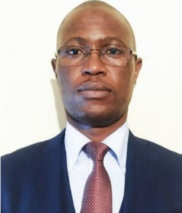Dr. Albert Novas Somanje, a Zambian sustainability scientist, is an accomplished expert in sustainable agriculture, climate change adaptation, and rural development. With a PhD in Sustainability Science from the United Nations University Institute for the Advanced Study of Sustainability (UNU-IAS) and the University of Tokyo, Dr. Somanje has devoted his career to addressing critical issues at the nexus of agriculture, climate, and development.
Dr. Somanje’s academic journey began with a Bachelor of Science in Agriculture from the University of Zambia. He further specialized with a Master of Science in Climate Change and Development from the University of Cape Town, followed by additional certifications in project management, natural capital, and leadership from esteemed institutions like UC Davis and UNU-IAS. His academic rigor is matched by his practical experience, including key roles at Zambia’s Ministry of Agriculture, where he spearheaded sustainable agricultural projects and mainstreamed climate adaptation strategies across the country.
Currently serving as Principal Agricultural Officer, Dr. Somanje coordinates national programs in sustainable crop production and collaborates with global and regional stakeholders such as UNDP, FAO, and WFP. His prior roles included Provincial Senior Agricultural Officer overseeing agricultural initiatives in Zambia’s southern province and Senior Agriculture Officer focusing on climate-resilient agricultural development programs and projects.
A prolific researcher and consultant, Dr. Somanje has contributed to global conversations through publications on urban-rural linkages, conservation agriculture, and climate-smart farming. His work has been recognized with prestigious awards, including a DAAD Post-Doctoral Fellowship and a Japan Foundation PhD Scholarship.
Driven by a vision for sustainable development, Dr. Somanje leverages his extensive expertise, collaborative spirit, and innovative solutions to transform agricultural systems and enhance resilience in Zambia and beyond.

